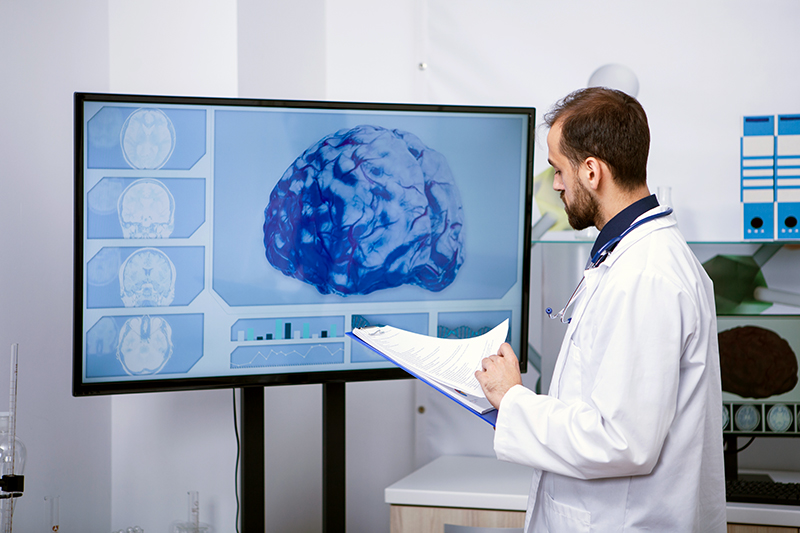
The human brain is a highly complex organ responsible for cognitive and emotional functions and controlling other bodily organs, including the ears, that enable our hearing. In this article, we’ll discuss the role of the brain in hearing and explore what can happen when the auditory system and brain fail to coordinate effectively.
Role of the Brain in Hearing: How Are They Connected?
Our ears enable us to perceive and differentiate sounds by transforming sound waves into information sent to the brain. To properly hear sounds, the sound waves must travel from the outer ear to reach the eardrum, causing it to vibrate. Then, the ossicles (the malleus, anvil, and stapes) receive this vibration and transmit it to the inner ear. Here, the cochlea stimulates the stereocilia, which send electrical impulses through the auditory nerve to the brain.
The brain’s intricate functions enable us to differentiate between background noise and the voice of the person we are conversing with. It acts as a filter that helps us concentrate on the voice we need to comprehend. When our auditory system functions correctly, the brain can even enhance the sound of our voice in a noisy environment. However, what happens when there is a disconnect between the brain and our hearing capabilities?
Effects of the Auditory System and Brain Disconnection
If someone has conductive hearing loss, their brain has to put in extra effort to distinguish speech from background noise. But if they have sensorineural hearing loss, their auditory nerve can’t process the sound even if it reaches the inner ear correctly.
Hearing problems can also stem from brain-related issues, such as tinnitus. This condition causes buzzing or ringing in the ears, even when there’s no external noise present. Research conducted by Hear-it has found that tinnitus is often linked to changes in the brain due to hearing loss.
How the Brain Adjusts to Hearing Loss
A recent study from the University of Colorado Boulder reveals that the brain adapts to hearing loss, even if it’s only mild. Using scanners, researchers examined the brains of individuals with hearing impairments and found that their other senses became more prominent shortly after hearing loss began. The scans also indicated that the frontal lobe, where memory is located, activated when these individuals were preparing to hear sounds.
Moreover, the study pointed out that consistent usage of hearing aids led to the patients’ brains adapting and becoming similar to the brain of an individual with normal hearing.
Issues That Can Lead to Hearing Loss
Experiencing hearing difficulties can cause individuals to feel detached and uncertain. It’s important to note that hearing loss can also impact mental health as it affects the brain. According to the National Council of Aging, those who don’t use a hearing aid are 50% more likely to suffer from depression than those who do. Additionally, research has shown that hearing loss or deafness can lead to emotional or behavioral problems.
In conclusion, it is imperative to recognize our brain’s vital role in our auditory abilities and acknowledge the detrimental effects of hearing loss on our mental well-being. Therefore, it is crucial to prioritize the maintenance of our hearing through consistent hygiene practices and frequent checkups to detect any changes in our auditory health.